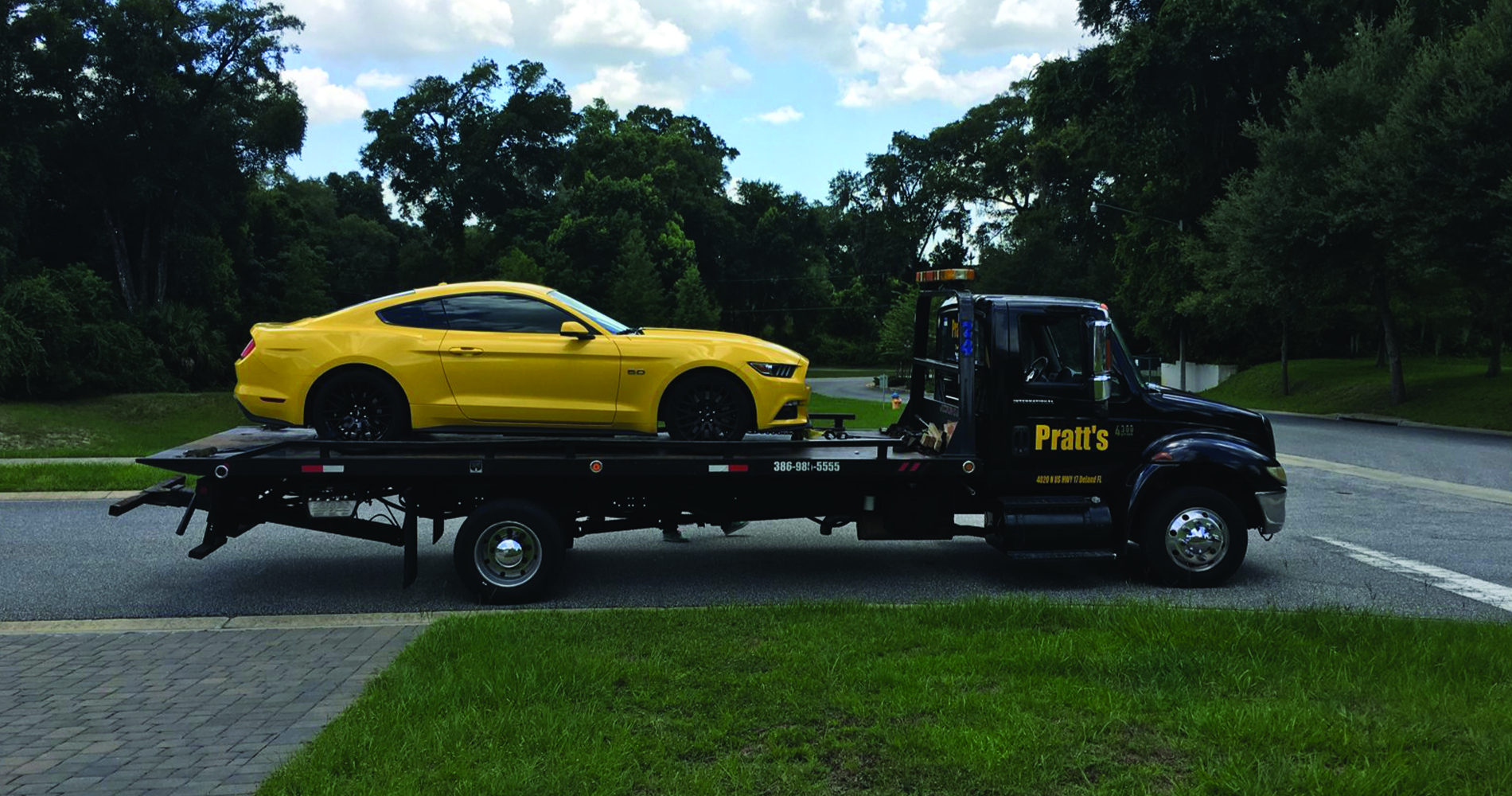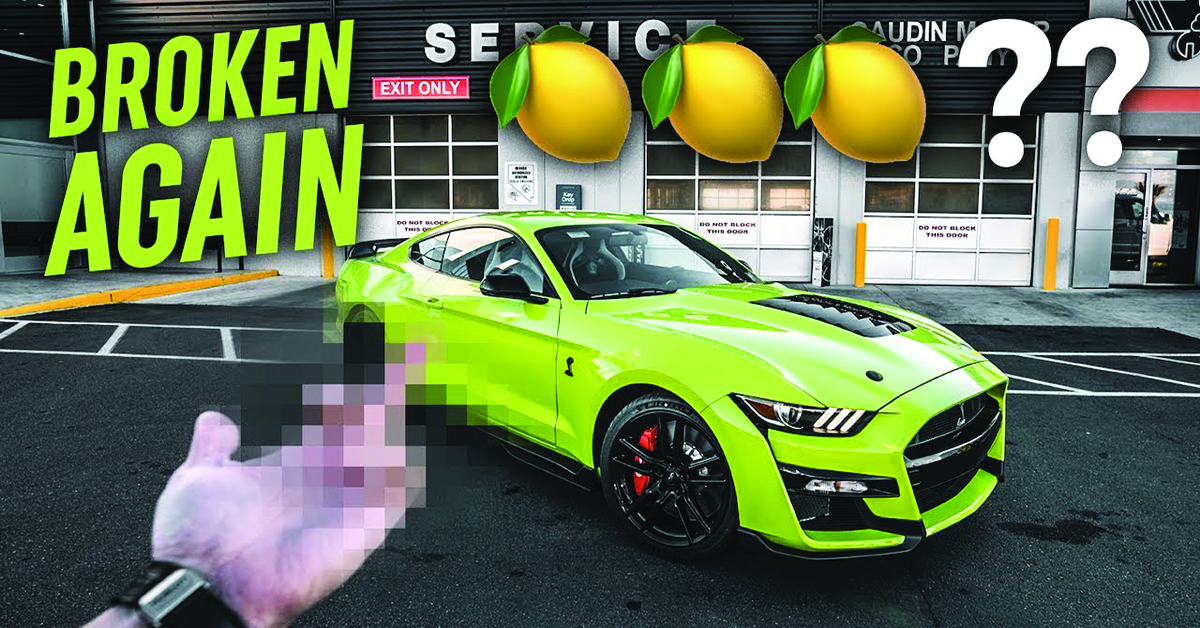Buying a new or low-mileage Mustang should mean forgetting about breakdowns, mechanical problems, or safety concerns, at least in the first few years of owning it. But imagine if your Mustang gives you headaches from day one.
When we talk about the quintessential American muscle car, the Ford Mustang is perhaps the first name that comes to mind. Yet, for some enthusiasts, the defects far outweigh the benefits, and it’s not rare that owners of brand-new Mustangs complain about manufacturing defects.
Consumers have reported the car suffering from a defective powertrain, malfunctioning electrical system, and braking issues, making them think they may have a lemon Mustang. So what should you do if your Mustang is a lemon?
Fortunately, lemon laws protect buyers and renters from severe warranty defects that the dealer or the manufacturer cannot repair. As a result, you may be entitled to a replacement or a reimbursement for your vehicle.
Via Carros en USA: https://carrosenusa.com/ley-limon/
What Is a Lemon?
Although there’s no exact definition, a vehicle may be termed a “lemon” if it suffers from a recurring mechanical problem subject to two or more repair attempts.
New vehicles may contain problems or defects in quality caused by design flaws or an error during the automotive factory build process. These faults range from parts installed incorrectly to a tool used to build the car not being removed or a batch of materials with structural or chemical flaws.
These mechanical faults must make the vehicle unfit for the purposes it was purchased. In addition, it must be a severe defect, not a minor imperfection. The severity of the defect is determined on a case-by-case basis.
Unfortunately, many consumers are forced to turn in their vehicles to financial institutions, ruining their credit histories because of the inability of the manufacturer or dealership to repair these mechanical faults.
Via Debt.com: https://www.debt.com/es/auto/ley-limon/
What Are Lemon Laws?
Each state in the United States and the District of Columbia have its own ‘lemon law.’ Although each establishes its own criteria for classifying a car as a lemon, they all offer similar remedies to solve the problem. This typically translates into compensating by buying back the vehicle from the manufacturer and not the dealer, as many believe.
Lemon laws are regulations that protect consumers if they purchase a defective vehicle or other products, referred to as lemons, that don’t meet their purported quality or usefulness.
Lemon laws apply when defects impair the vehicle’s or product’s use, safety, or value. For example, suppose the product cannot be repaired successfully after a reasonable number of attempts. In that case, the manufacturer must replace it or repurchase it.
Via Motor 1: https://es.motor1.com/news/486987/ford-mustang-shelby-gt500-2021-novedades/
What Defines a “Lemon”?
For a car to be considered a lemon, the defect must be substantial and affect its operation or passengers’ safety. Flaws such as broken glass or poorly sewn upholstery do not meet essential requirements. In addition, the defect must be manufacturing and not the consequence of vehicle misuse.
Consumer protection legislation labels vehicles as “lemons” if the same problem occurs despite multiple repair attempts. For instance, three times in a row over a short period, where previous attempts have yet to correct the problem. Another scenario contemplates defects that have caused a new vehicle to be in a repair shop for a prolonged period, typically 30 days.
How Do Lemon Laws Protect You?
Lemon laws primarily force manufacturers to replace or buy back defective vehicles. However, depending on the jurisdiction, a process similar to vehicle title branding may also warn subsequent purchasers of the history of a problem vehicle. First, however, steps must be taken to take advantage of legal remedies:
Documentation: It is highly recommended to document failures and repair attempts, keeping all related documentation, such as repair orders and receipts from the mechanical workshop.
Notify the manufacturer: In writing, notify the vehicle manufacturer if you suspect the vehicle is a lemon.
Initiate the official claim procedure before the legal window to do so is closed: Although each state establishes the opportune time to request the repairs established by its particular lemon law, it is common that both the reports of failures, as well as their attempts to repair must have occurred before the first year or two from the purchase of the vehicle, or before the first 12,000 to 24,000 miles driven. Usually, the opportunity to apply the law expires after the first of these milestones occurs.
Most lemon laws only protect against manufacturing defects in new cars. However, statutes in the states of Connecticut, Massachusetts, Minnesota, New Jersey, New Mexico, and New York also cover used cars. This is important, as many lemon cars end up on the used car market.
Via Ford: https://es.ford.com/cars/mustang/features/performance/
How Likely Is It That Your Mustang Is a Lemon?
Nearly every car manufacturer has sold vehicles with faulty components at some point. However, certain automakers seem to produce more lemons than others. So if you’re in the market for a new or used Mustang, you must research extensively before purchasing one, or you may end up with a lemon ‘Stang yourself.
Fortunately, there is good news for Mustang owners, prospective owners, and Ford enthusiasts. The blue oval brand does not make the list of the car manufacturers with the highest numbers of reported lemons and consumer complaints. Among the top offenders are GM, Volkswagen AG, and on top of the list, Stellantis (Chrysler, Jeep, Dodge, Fiat).
What Can You Do if You Think Your ‘Stang Is a Lemon?
Mustangs don’t typically appear on the “top Lemons” lists, but that doesn’t mean that lemon’ Stangs don’t exist. For example, a recent concern has been surrounding the 10R80 transmission, also found in current Mustangs.
There have even been cases where things like lingering foul odors and faulty paint jobs have been considered enough to qualify as a lemon car. Still, the vehicle must typically have a significant defect covered by the warranty. So if you think your ‘Stang is a lemon, there are several things you can do.
Via Houston Crosta YouTube channel: https://www.youtube.com/watch?v=9LHfsBsGT_I
First, make sure you have the necessary documentation. Next, notify the dealer or manufacturer and give them a reasonable number of tries to fix the vehicle. If the car continues to have problems, you have the right to replace it or refund your money. If the order is rejected, you can file a civil lawsuit demanding a full refund or replacement of the same vehicle model.
Here is a list of essential documents to keep and steps to take in a lemon law case:
Purchase date and contract
Make sure you have your contract with the date of purchase in a safe place to use as evidence.
Date of the first complaint
Keep a journal documenting the problems with the vehicle, the circumstances under which they arose, and how they were handled by the dealer or manufacturer.
Evidence
Be sure to keep records of any communication—text messages, emails, social media texts, voicemails, and even phone calls—between you and the manufacturer or dealer.
Service and repair records
Keep detailed records of every service and repair the vehicle has needed. For example, be sure to save all utility bills.
Hire an attorney
If you are overwhelmed by dealer or manufacturer resistance, it may be time to hire an attorney who knows the ins and outs of the Lemon Law in your state.










